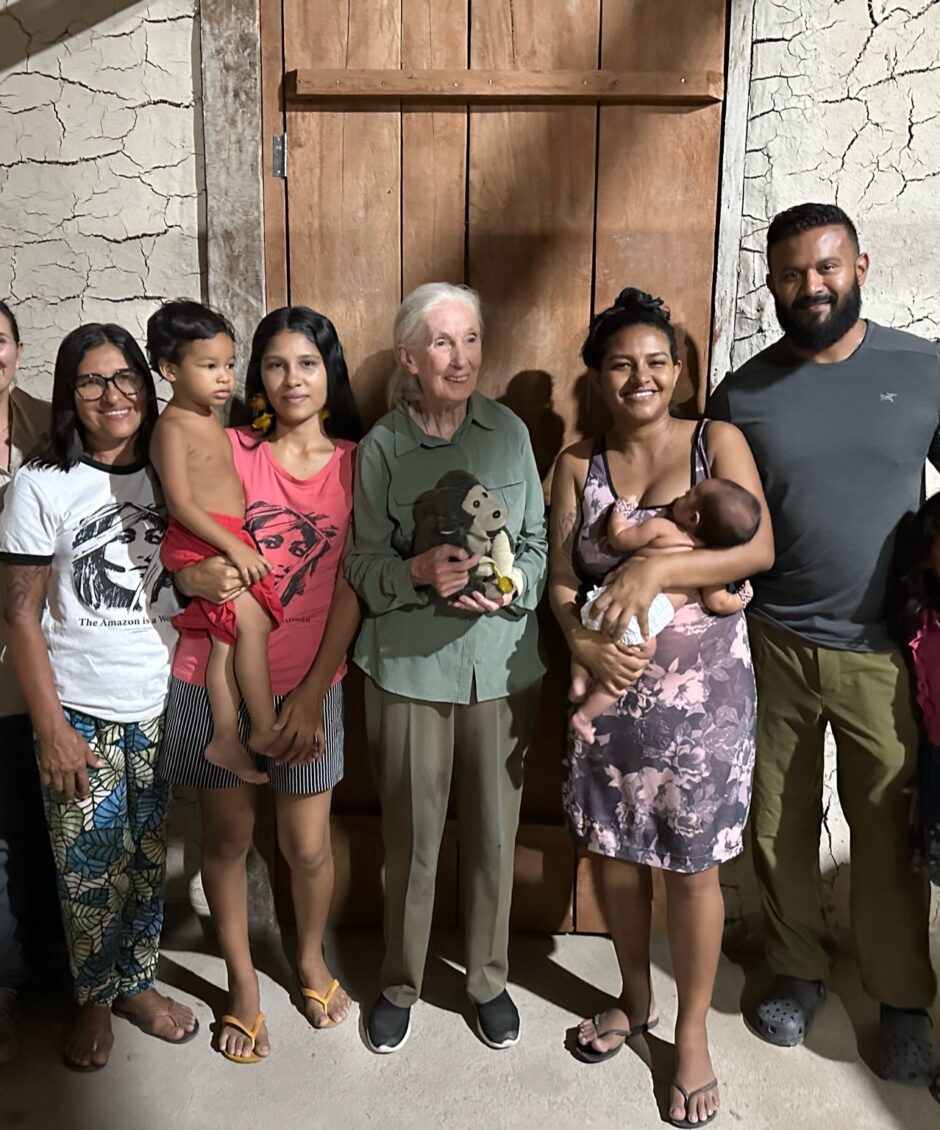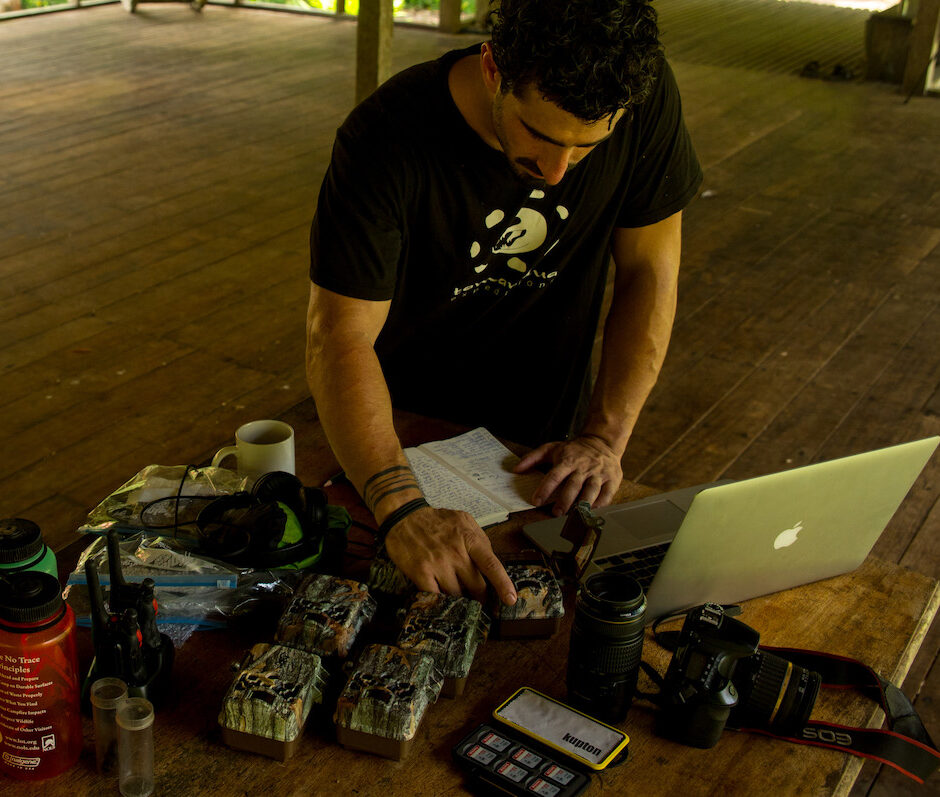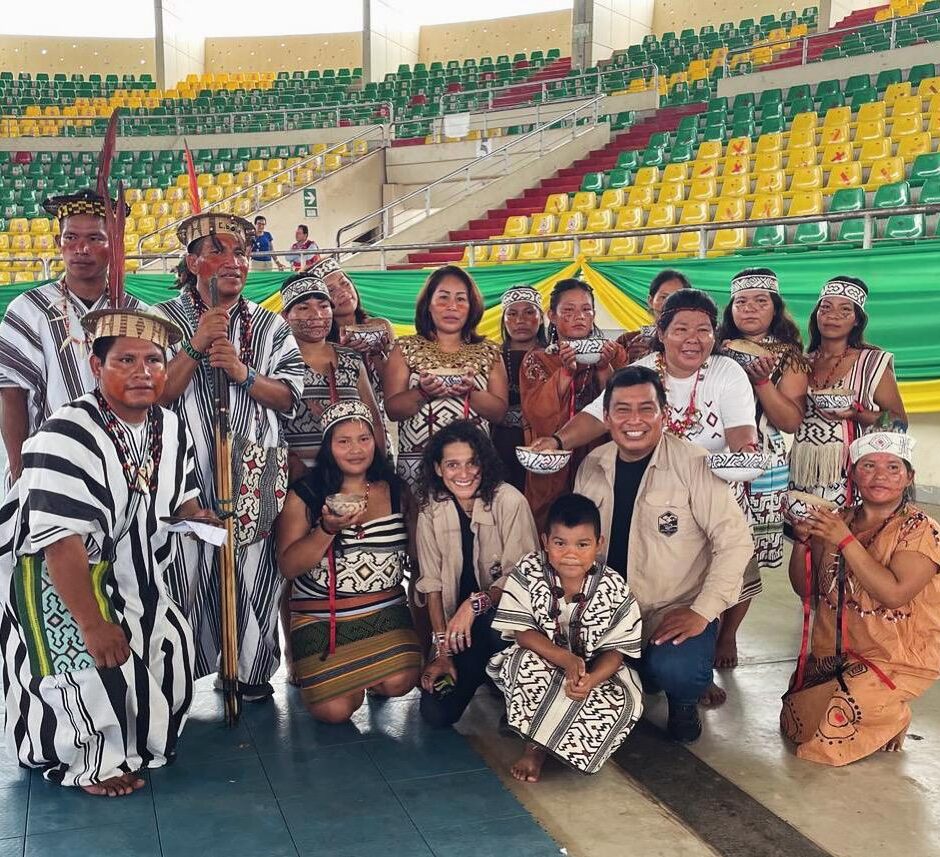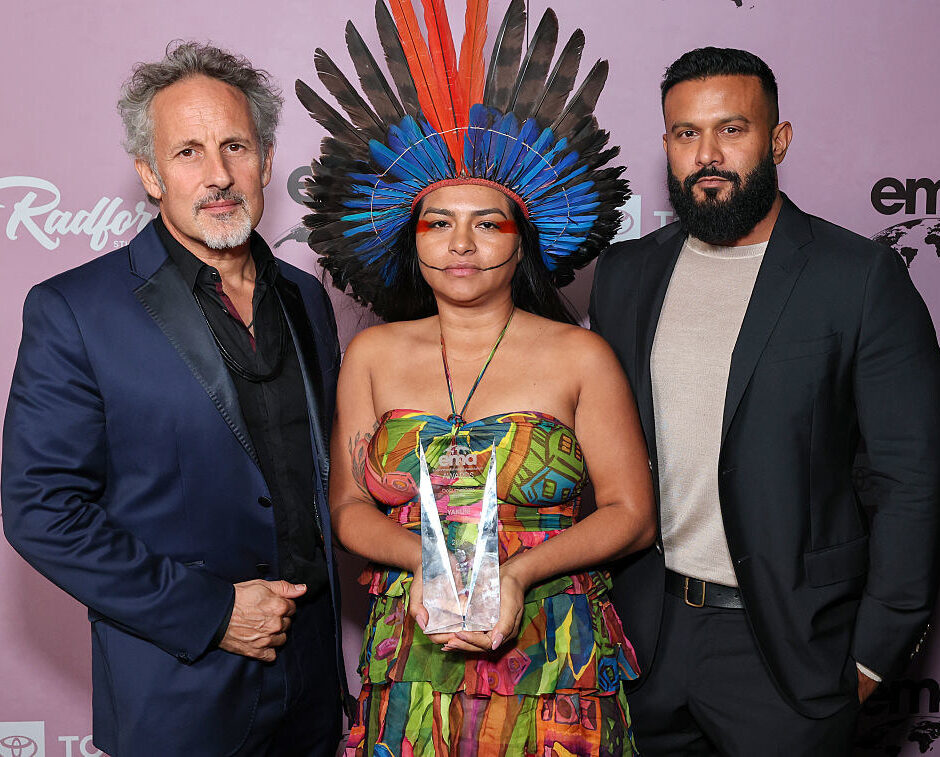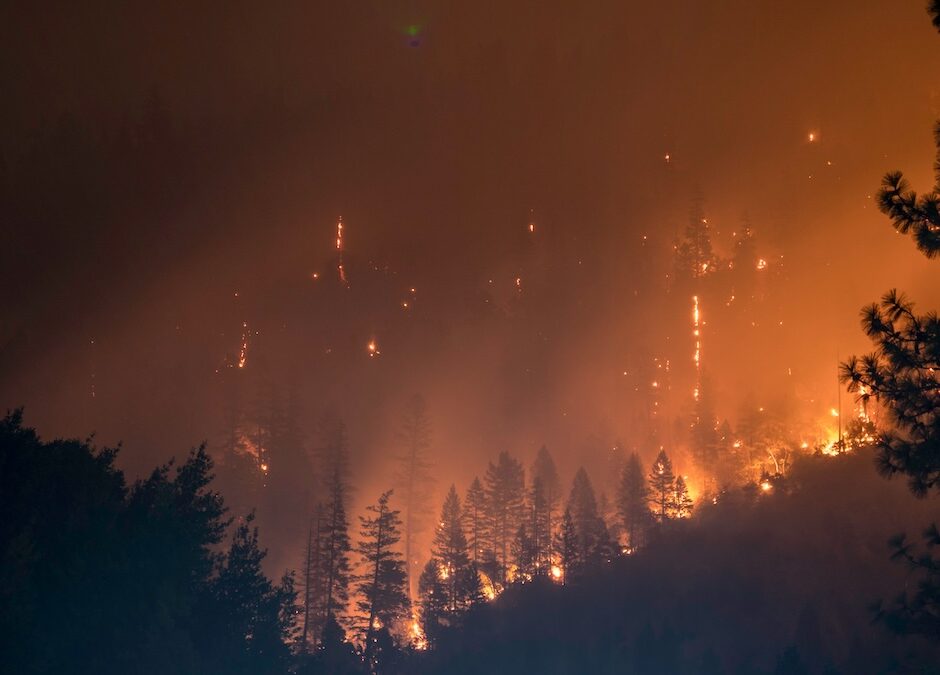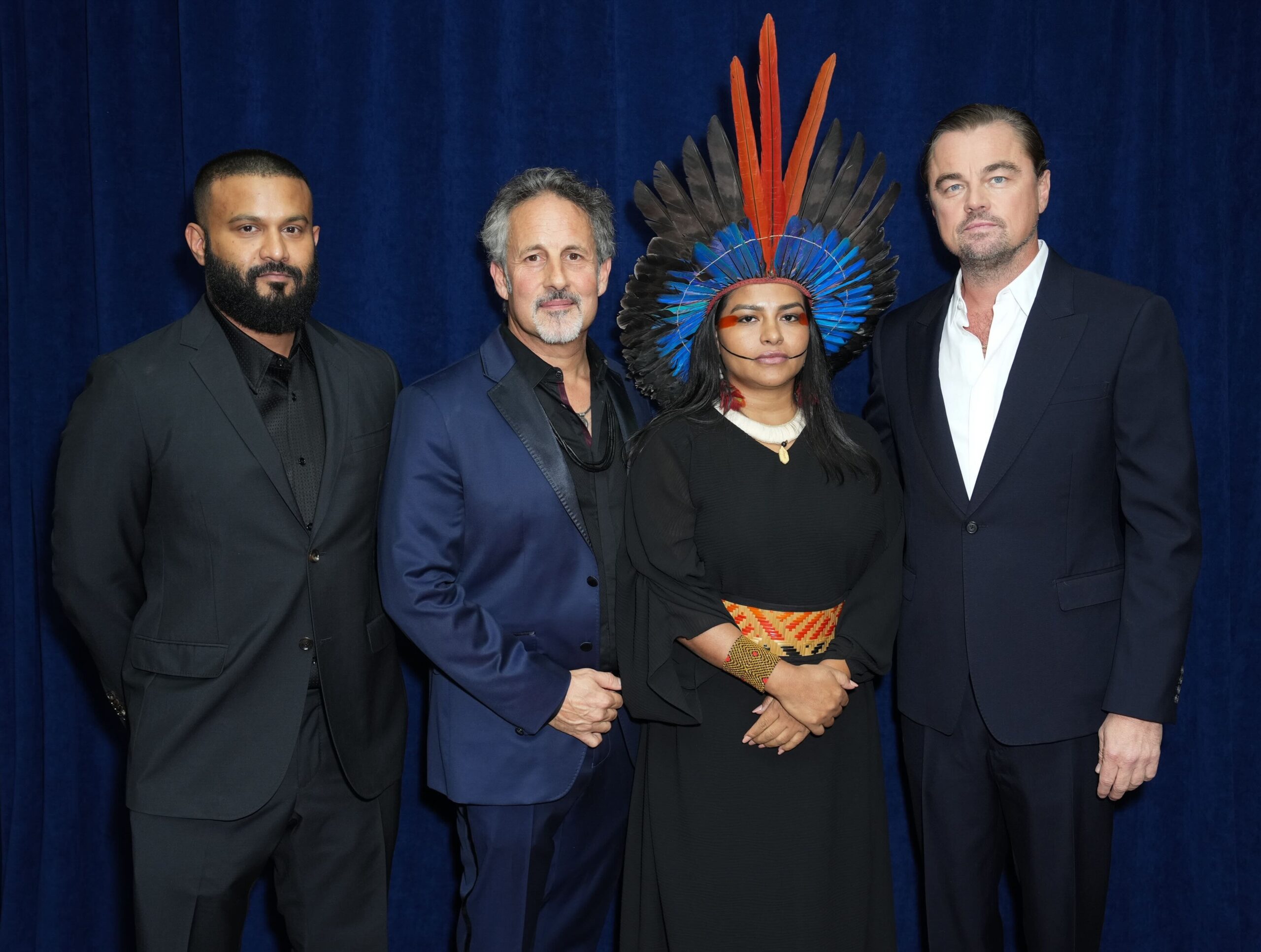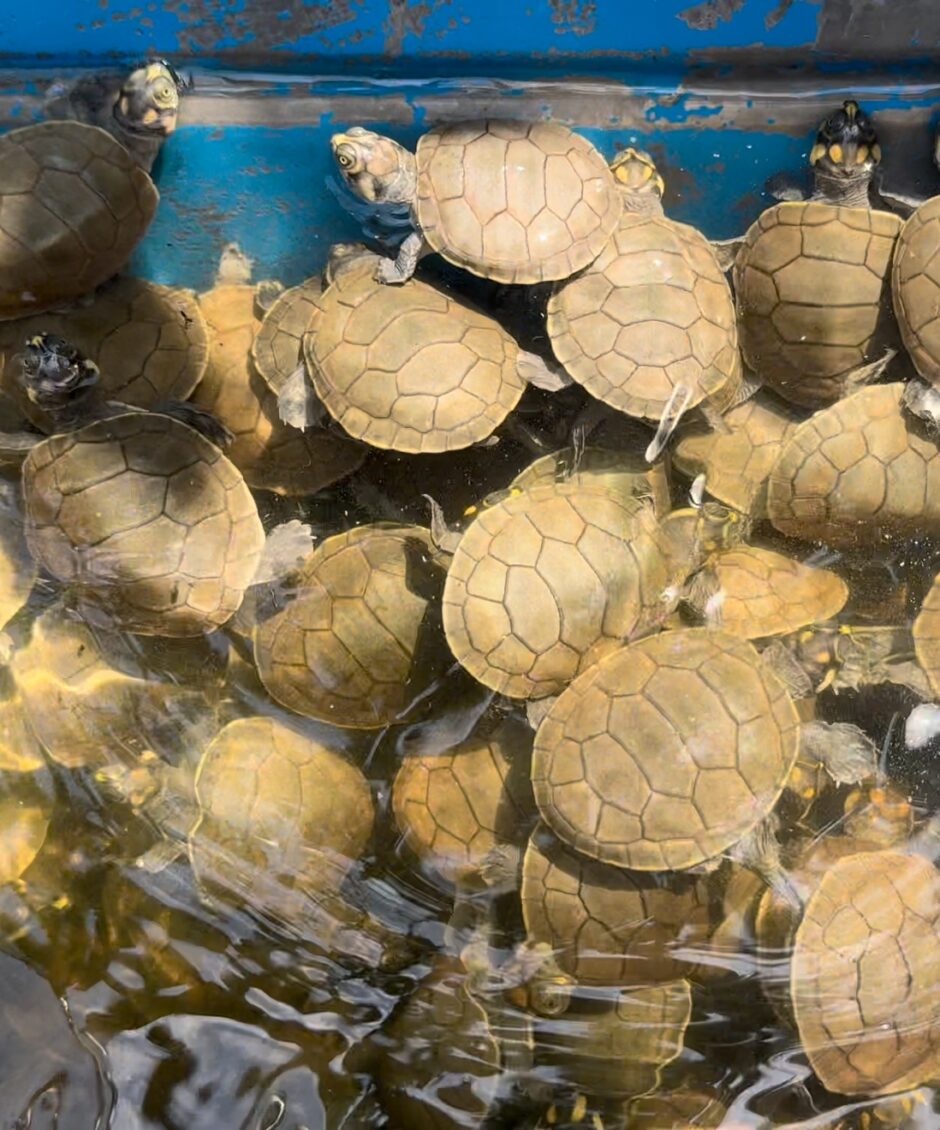In the Amazon, Gold Mining Leaves a Toxic Trail
Article
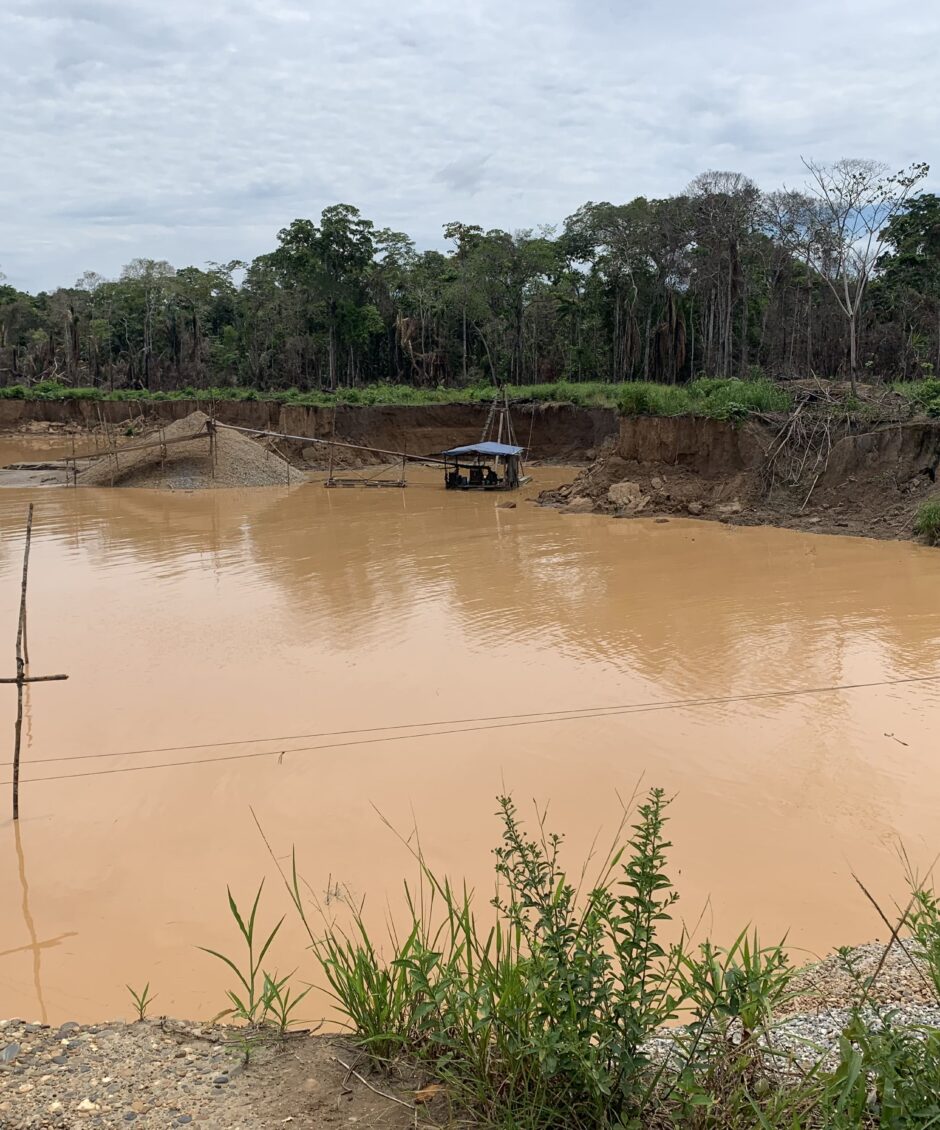
The remote and vast frontier environment of the Amazon rainforest is the source of its wildness; unparalleled biodiversity, lush forests, winding rivers, but also lawlessness.
International concern over rising deforestation rates spans headlines, and national leaders, including Luiz Inàcio Lula de Silva, President of Brazil, promised to address the land grabs, wildfires, and sprawling agricultural development and cattle ranching that drive deforestation. But there’s also a less well-known destructive force that can accompany and cause deforestation and other pollution in the Amazon: mining.
Author
Cassie Hoffman
Topics
While industrial mines line the Andes, deep in the Amazon, a different kind of gold rush is underway. Small crews of artisanal miners scour riverbeds for flecks of gold carried downstream. Using crude tools, they clear the forest and blast the earth with high-powered hoses, churning it into slurry to sift out tiny particles of gold. This slurry is washed over makeshift sluices lined with carpets, which trap the gold as it sinks to the bottom of the flowing stream due to its density. The gold is shaken into a barrel and mixed with mercury, which forms it into a sponge-like ball. A blowtorch then burns off the mercury, releasing it into the air.
Artisanal and small-scale gold mining leaves behind a wasteland. Not only are the trees gone, but several meters of topsoil and earth are removed, leaving behind sandy landscapes pocketed with contaminated mercury pools. The loss of carbon in these sandy soils makes it difficult for landscapes to regenerate, while nearby waterways and atmosphere become polluted with mercury that is discarded into rivers and streams and trapped in the surrounding tree canopies. This transformation of the landscape has devastating consequences for the environment as well as livelihoods and well-being of communities nearby and downstream. Mercury, a powerful neurotoxin, has contaminated fish and waterways deep in the Amazon, causing developmental and neurological harm to children and adults exposed to it.
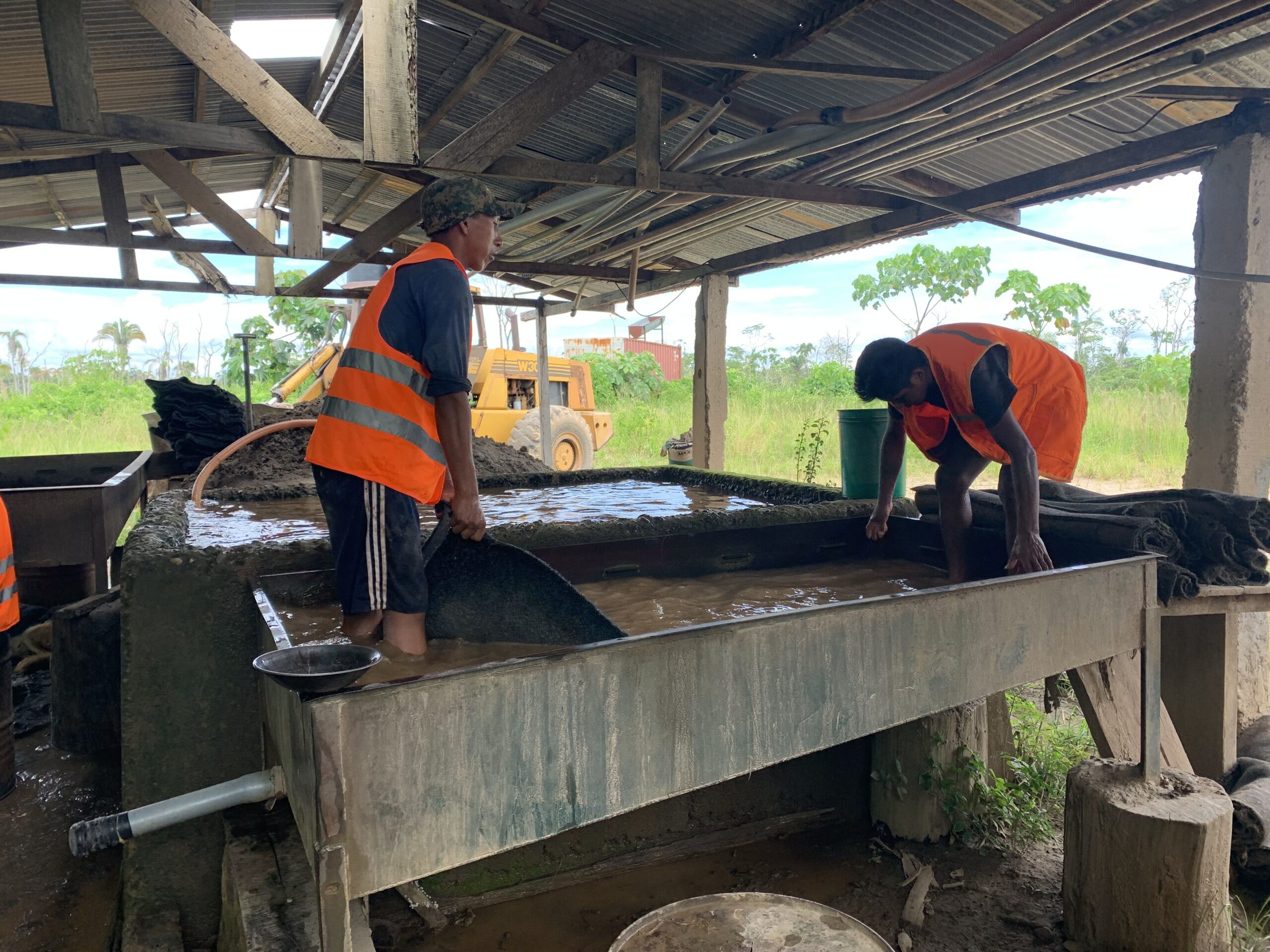
A Complex Problem Spanning a Global Supply Chain
While legal mining concessions exist in areas that border or overlap with the forest, the majority of artisanal mining is informal and much of it illegal (when conducted on protected lands, Indigenous territories, or outside of concessions).
Many of these small, informal mining crews are backed by narco-trafficking groups. Drawn by the promise of wages far higher than any local work can offer, miners are enticed into day labor at these sites.
It’s extremely difficult — and often dangerous — for national and regional governments to patrol these remote frontier areas. Mining operations are scattered, fast-moving, and covert. Efforts to formalize the artisanal mining sector move slowly, hindered by the challenge of regulating such a dispersed and risky industry, further complicated by corruption and bribery.
But even as governments struggle to control mining on the ground, global demand continues to fuel its expansion. Consumer demand for gold in countries such as the US, China, and India drives much of the informal and illegal artisanal mining across Latin America. Without strong tracking and traceability systems, illegal gold easily flows into the legal market and ends up in consumer goods like jewelry and smartphones. In the past two years, the price of gold has nearly doubled to US$3,300 per ounce, making both legal and illegal mining even more profitable.
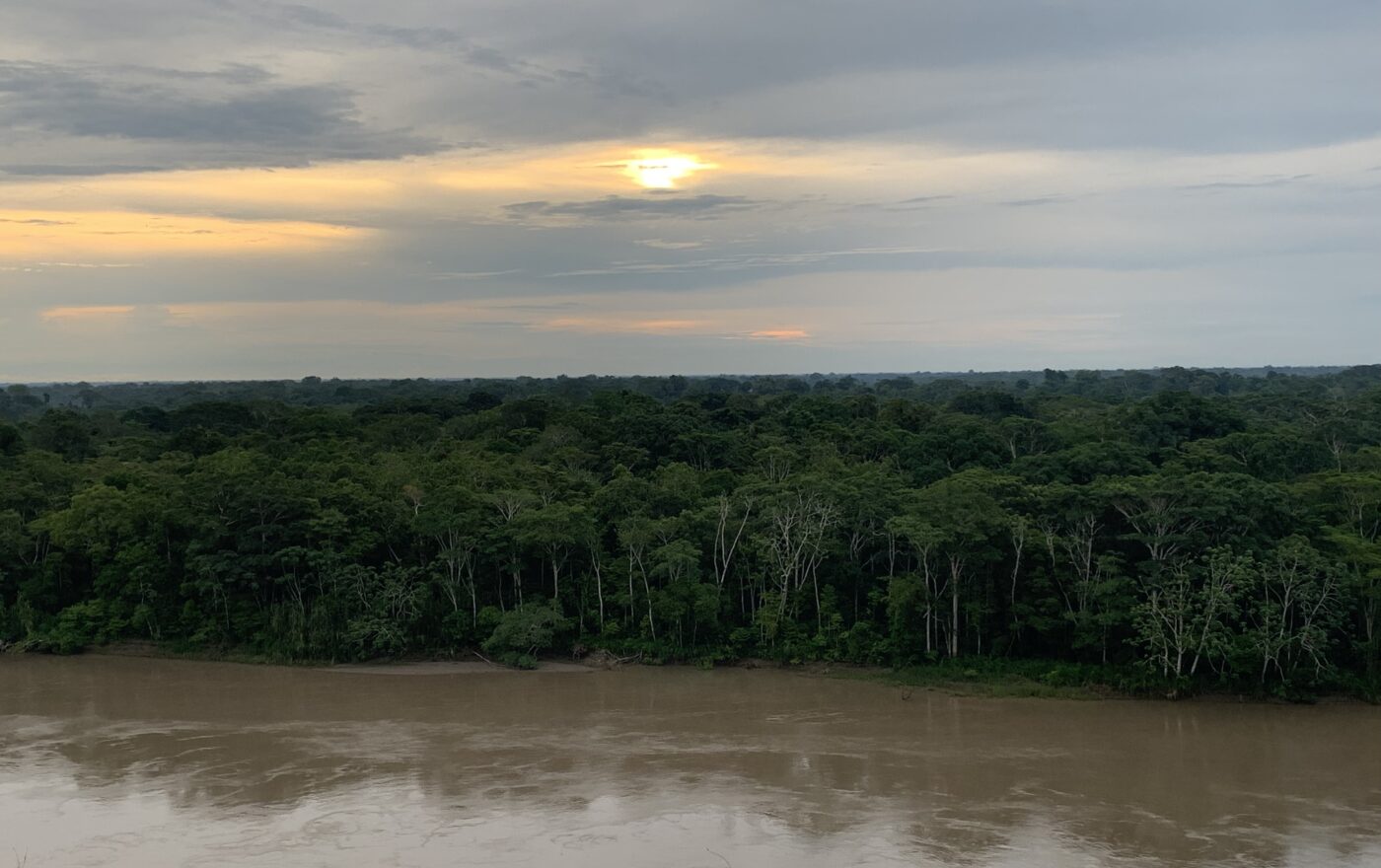
Responsible Consumer Choices, Better Policy, and Protecting Critical Landscapes
While stronger regulatory and oversight frameworks and systems are needed, a critical means to protecting these landscapes is patrolling and monitoring them for invasions.
Age of Union invests in projects like Junglekeepers, protecting land near the Las Pierdas river, which is very close to the artisanal mining hot spot of La Pampa, just outside of Puerto Maldondo, Peru. Juma Institute, another Age of Union partner, also patrols 179,000 hectares of Indigenous territory threatened by potential invasions by gold miners.
“Gold mining, along with other illegal activities, has a profound impact on Indigenous communities. In addition to invading their territories, mining brings water contamination and the loss of biodiversity, both plants and animals that serve as food and are part of an essential chain for maintaining life in the forest and on the planet as a whole,” stated Joielan Xipaya, forest engineer and general coordinator at the Juma Institute. “Composed of Indigenous members and partners from neighbouring Conservation Units, the territorial management team constantly monitors the territory and reports illegal activities, defending the life and culture of its people.”
New or adapted technologies are improving the efficacy of monitoring (community forest monitoring apps and drones), trying to reduce the use of mercury in the mining process, and improving the effectiveness of tracing and trackability of gold. Additionally, consumers can engage in responsible purchasing. When buying jewelry and/or electronics, they should investigate companies’ sourcing policies and ask questions about the origin of raw materials and how they were mined.
Only by working across the gold supply chain – from protected critical habitats and Indigenous territories, responsible mining at the source, better processing techniques, more reliable tracking, and diligent consumer research and pressure can systemic change be made.
Credits
Photo Credits: Cassie Hoffman
Topics
Article written by
Cassie Hoffman
Related
articles
News, Project, South America
Age of Union Announces USD $287,000 Commitment to The Juma Institute for New Knowledge Centre and Amazon Rainforest Protection
South America
How Technology is Opening New Windows into Unseen Parts of the Wild
Project, South America
Puerto Nuevo Indigenous Community Secures Land Title After 25 Years of Effort
Project
More articles
News
Age of Union Marks 4 Years of Global Conservation Wins As COP30 Commences in Brazil
News, Other
‘Echoes from Eden’ Book Tour Connects Readers to Urgent Stories of Conservation
America, Asia, News
What More Intense Wildfire Seasons Mean For People and the Planet
Film
